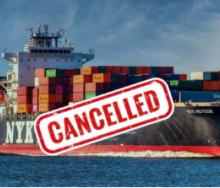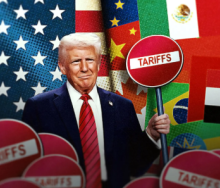It has been a year since finance minister Enoch Godongwana promised an end to e-tolls, but motorists in Gauteng are still grappling with the system.
The Organisation Undoing Tax Abuse (Outa) said in a statement that it is “dismayed” at the government’s failure to implement its own decision to scrap e-tolls, which it promised millions of Gauteng road users.
On 23 October 2022, in the Medium-Term Budget Policy Statement (MTPBS) Godongwana announced government’s alternative funding mechanism to address the financing of the Gauteng Freeway Improvement Project (GFIP) debt, which involved state-allocated funds.
Shortly thereafter, Gauteng premier Panyaza Lesufi confirmed that the e-toll scheme would be deactivated by 31 December.
He also mentioned the possibility of refunding a substantial sum of R6.8 billion to motorists.
MTBPS 2022 provided an additional R27 476 billion for Sanral: R3 740 billion through the Adjustments Appropriation Act 2022 specifically for the GFIP and R23 736 billion through the Special Appropriation Act 2022 for Sanral’s debt redemption fund.
Outa made a formal submission to the Standing and Select Committees on Appropriations on the MTBPS money bills and the Sanral transfers last November.
“We asked for an explanation of Sanral’s debt, the GFIP debt and what was being paid off. Parliament passed those bills but we have yet to receive an explanation,” Outa said.
Budget 2023 included another R2.2 billon for the GFIP and the transport vote referred to the R23.736 billion received through the MTBPS towards the Sanral debt as “a partial solution” to the GFIP debt, with no clear explanation of that debt.
Outa has now posed the question: “As we stand in October 2023, not a single step has been taken to implement the decision to scrap e-tolls.
“The burning questions are: What will it take for the government to honour its own commitment?
“What has Sanral done with the additional funds it received towards paying off the GFIP debt?
“Sanral’s Integrated Report for 2022/23 notes that the Gauteng government will contribute 30% of the outstanding GFIP debt and national government the remaining 70%.”
An amount of R23.736 billion in the Special Appropriation Act 2022 was the government’s “first contribution” to its share.
“This issue transcends the debate between national and provincial government responsibilities; it is about the irrationality and injustice of a scheme that has burdened Gauteng motorists for far too long.
“The e-toll system has placed an unfair financial strain on citizens, and yet the government has either failed or refused to terminate it, despite making a clear decision to do so a year ago,” Outa said.
The organisation added that Sanral had also incurred “wasteful expenditure” by way of administrative costs for the extension of the e-toll collection contract and for sending bills to thousands of motorists over the last year.
Outa CEO Wayne Duvenage said the government had betrayed citizens’ trust by delaying the dismantling of the system.
“We have patiently awaited relief from this irrational system, and the government’s inaction is causing needless stress to South African motorists.
“Outa calls upon the government to act immediately on its commitment to end e-tolls and deliver the relief it promised,” Duvenage said.













